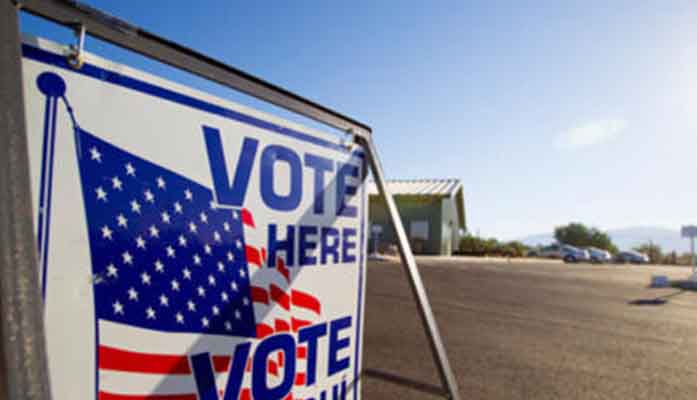By Terri Jo Neff |
While much of the spirited debate about election legislation has centered on what happens after the polls close, several bills have been introduced to change the process of how and when a voter can receive and cast a ballot. And at least two new felony offenses would be created as a result.
A bill sponsored by Rep. Jake Hoffman (R-LD12) would make a felon out of any city or town clerk, or county recorder or other election official who provides an early ballot to a voter did not request it at least 93 days before an election, unless the voter is on the permanent early voting list.
Hoffman’s bill, HB2792, prohibits sending out an early ballot unless the voter complies with all early voting laws, including the request deadline. The intent, according to Hoffman, is to avoid situations seen in many states in the 2020 General Election when election officials mailed out ballots under the guise of avoiding COVID-19 contact at polling places.
Knowingly issuing unauthorized early ballots would be a Class 5 felony, subject to a prison sentence of up to 2.5 years, comparable to the sentence for facilitating prostitution and aggravated assault on a peace officer. Hoffman’s bill cleared the House last week on a 31-28 margin and is now under consideration by the Senate.
Another bill, SB1106, passed the Senate by a 16 to 14 margin last week. It makes it a Class 6 felony for a person who knowingly registers to vote in Arizona “solely for the purpose of voting in an election in this state and without the requisite intent to remain.”
SB1106 sponsored by Sen. J.D. Mesnard (R-LD17) would amend ARS § 16-182, which currently requires a voter in Arizona to be a resident of the state for 29 days preceding an election and to have been registered to vote for the same period. It is now a Class 6 felony for someone to register to vote or to actually vote if the person knew they were not entitled to do so.
But under Mesnard’s bill, a new voter who moves away at some undefined amount of time after an election could have their voting action challenges and then have to prove at trial what their intent was at the time they voted.
A Class 6 felony is punishable by up to two years in prison as well as loss of several rights, including the ability to possess or own firearms. Comparable offenses are witness tampering, possession of drug paraphernalia, and theft of property less than $2,000.
Sen. Michelle Ugenti-Rita (R-LD23) has had success with several election-related bills, including SB1002 which requires election officials to ensure that the envelopes used by voters to return early ballots do not reveal the voter’s political party affiliation. Her bill easily cleared the Senate on a 20 to 9 margin and is expected to be taken up by the House on Tuesday.
On Monday, the Senate transmitted SB1713, also by Mesnard, to the House on a 16 to 14 margin. The bill adds steps to the vote-by-mail process, so a voter cannot simply sign the affidavit on the ballot envelope and put it in the mailing envelope with the ballot.
SB1713 would also require the voter to include their date of birth on the affidavit and write their driver’s license or an acceptable government-issued ID number on the affidavit before placing it and the ballot in the mailing envelope. There would be a more complicated process for voters who do not have an acceptable government ID card.
If the bill passes, failure to follow any of the new affidavit requirements would cause the submitted ballot to be rejected.
Meanwhile, the House approved a bill last week that requires voters whose polling place uses paper ballots be offered a “ballot privacy folder” when given their ballot, although they do not have to use it. The bill, HB2362 by Rep. John Kavanagh (R-LD23), is now assigned to the Senate Committee on Government.








